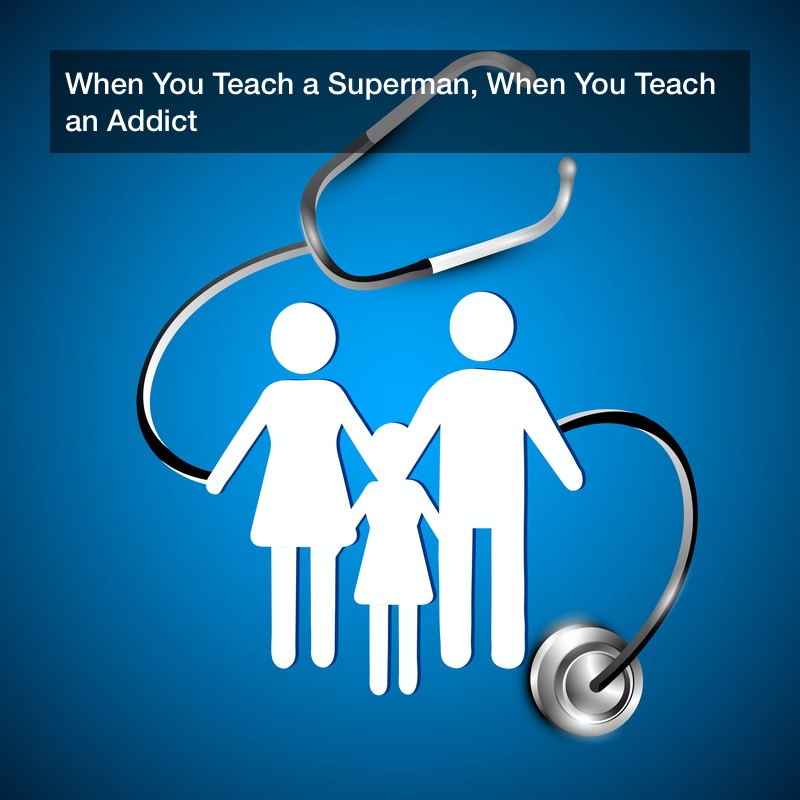
You are am a teacher!
Students come and go in your life. Some kids are more memorable than others! This week the national news featured one of your former second grade class members and you can say he was special then and now! His mom babysat your oldest daughter when you went back to work!! He comes from the best family. Actually, you blame this young man for your girls’ involvement in show choir! You were the Grant Fabry fan club when he was in show choir and musicals. So it is easy to imagine your surprise when you opened an article today and saw that name and face as a nurse in your city’s Biocontainment Unit.
In second grade this young man wore his super hero capes to school. Literally, almost every chance he got he would show up in class with that cape. Today, you are proud to announce to your friends and family that he is wearing an invisible cape that is helping the sickest people in the are! You are so proud of this young man and want to thank this real life hero. You told this young man’s mom in second grade that he would change the world! Today, he really is doing that.
On the other end of the spectrum, of course, are the students that are not super human. The students who struggle with addiction. The students who, even if they once had super human powers, are relying on drug and alcohol intervention to even survive.
Family Intervention Services Provide Many Parents with the Hope That They Need
Whether you have a loved one who is dealing with meth addiction, alcohol addiction, or another kind of substance addiction, it is important that you find the drug and alcohol intervention programs that can provide your loved one with the most resources. From the time that is spent inside the actual rehabilitation clinic to the tools that are provided to addiction patients when they reenter society, the methods that drug and alcohol intervention clinics matter. Consider some of these facts and figures about the drug and alcohol intervention clinics and the millions of people they provide help for:
- In the year 2015 alone, there were 78,529 liver disease deaths, and 47% were because of alcohol abuse, according to the National Institute on Alcohol Abuse.
- Within 10 to 12 hours after you have stopped drinking, the initial withdrawal symptoms typically start to occur.
- Medically supervised detox involves medical attention for 24 hours around the clock, but only 7% of adults receive treatment for their alcoholism.
- Severe symptoms of alcohol withdrawal will start until 24 to 48 hours after your last drink, so it is important that you have someone helping you monitor these times. In many cases, the only real hope is a professional intervention program.
- As many as 3% to 5% of people who withdrawal from heavy drinking experience delirium tremens, a dangerous condition that can lead to risky behavior.
- If you have a loved one who suffers from addiction, it is important to know that alcohol is one of the most commonly abused substances in the U.S.
- Nearly 18 million people in the nation have misused prescription drugs at least once in the past year, and it is these people who may find themselves looking for a powerful intervention product.
- In 2017, there were almost 58 opioid prescriptions written for every 100 American. Vicodin, a year earlier, was the 13th most prescribed medication in 2016 with over 40 million prescriptions.
- 2 million Americans misuse prescription pain drugs, which includes the more than 1.5 million Americans are misusing tranquilizers.
- 1.6 million Americans reported using methamphetamine in 2017.
If you are a teacher you have certainly experienced a wide range of students. From the superhuman young men and women who lead the nation in medical care to those students who fall victims to the struggles of addiction, these students often present themselves in the youngest classrooms with the same amount of hope. When that hope disappears, however, there are many people who find themselves in desperate need of the services provided by intervention clinics. Getting the help that you need is important to the future you will live, including nurses and doctors.


